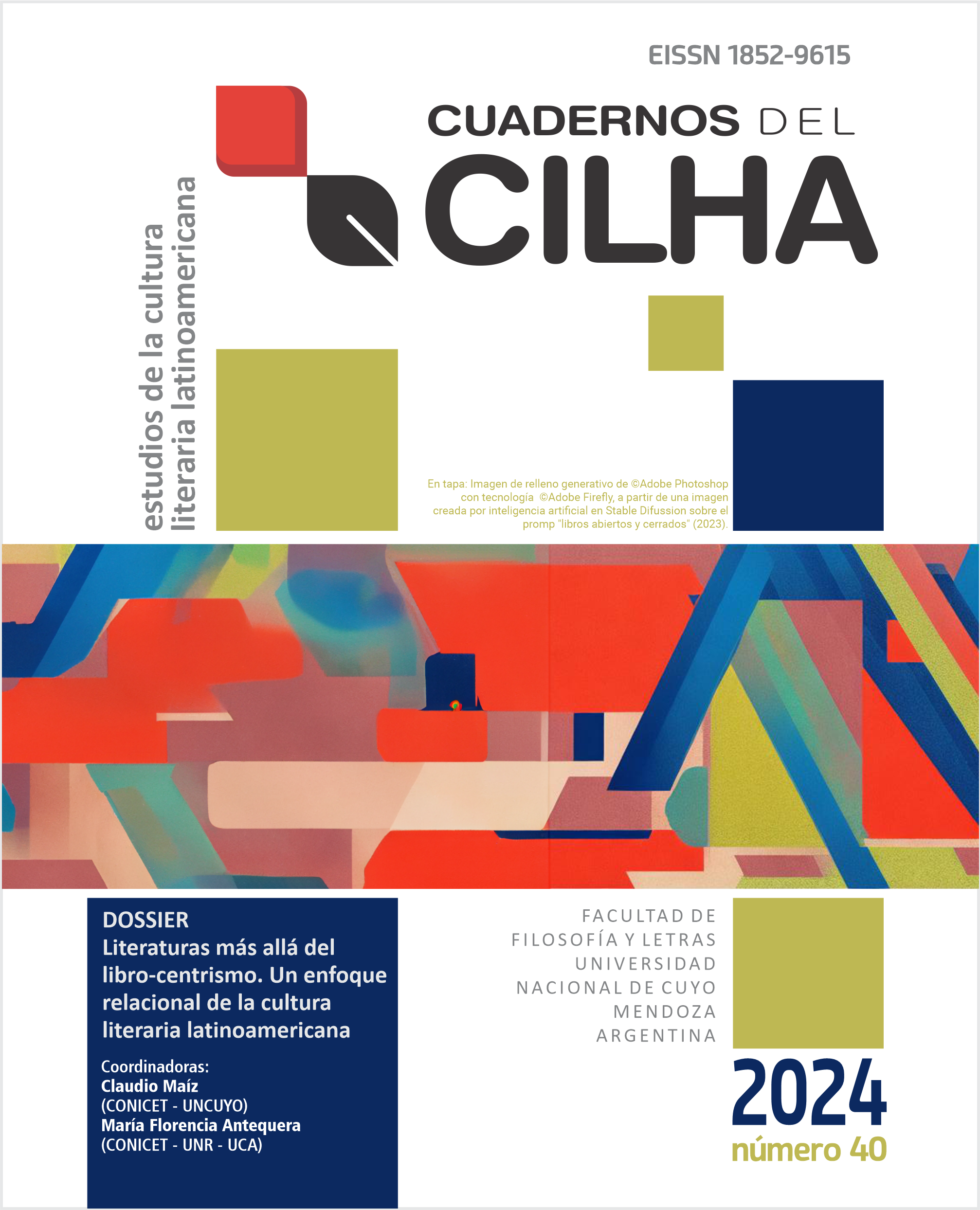Memoir, poetry, witness, poetic translation: the spatial turn applied to Claribel Alegría’s and Carolyn Forché’s works
DOI:
https://doi.org/10.48162/rev.34.095Keywords:
Claribel Alegría, Carolyn Forche, poetry, spatial turnAbstract
Claribel Alegría (Nicaragua, 1924-2018) and Carolyn Forché (USA, 1950) are poets of the Americas. Their trajectories cross showing fluidity between texts and contexts, texts and paratexts, and dialogue in poetic translation. This paper aims at exploring the connections between Flores del volcán, a book of poems by Claribel Alegría (1982) translated into English by Forché; and The Country between Us, a book of poems by Carolyn Forché (1981). Both are read under the light of Forché’s essays and her memoir What You Have Heard Is True (2019). The theoretical framework is the spatial turn as developed by Edward Soja (1996; 1999), Doreen Massey (2005) and Setha Low (2017) who see space and identity as a product of interrelations among simultaneities. Thus, the paper puts forward the need to consider Alegría’s Latin American and Forché’s American poetry in a relation that encompasses languages, cultures, (re)creation of identities and transcultural passages.
References
Alcántar, S. (2018). Volcán y lucha social: el símbolo del volcán en Cenizas de Izalco y algunos poemas de Claribel Alegría. Istmo. Revista virtual de estudios literarios y culturales centroamericanos, 36, 130-144.
Alegría, C. (1982). Flores del volcán/Flowers from the Volcano (Trad. de Carolyn Forché). Pittsburgh University Press.
Campo, R. (2000). The Language of Sorrow [Review of Sorrow, by C. Alegría y C. Forché]. Agni, 52, 288-290. http://www.jstor.org/stable/23010585
Forché, C. (1981). The Country Between Us. Harper-Perennial.
Forché, C. (2019). What You Have Heard Is True. A Memoir of Witness and Resistance. Penguin/Random House.
Forché, C. y Alegría, C. (1984). Interview with Claribel Alegría. Index on Censorship, 13(2), 11-13.
Huete, U. y Alegría, C. (10 de noviembre de 2015). El que quiera conocerme, que lea mi poesía. Entrevista con Claribel Alegría. El país. https://elpais.com/cultura/2015/11/05/babelia/1446727013_775954.html
Low, S. (2017). Spatializing Culture. The Ethnography of Space and Place. Routledge.
Massey, D. (2005). For Space. Sage Publications.
Raggio, M. (2023). Poesía y traducción testimonial: Claribel Alegría y Carolyn Forché. Letras, 73, 39-62. https://doi.org/10.15359/rl.2-73.2
Soja, E. (1996). Thirdspace: Journeys to Los Angeles and Other Real-And-Imagined Spaces. Blackwell.
Soja, E. (1999). Thirdspace: Expanding the Scope of the Geographical Imagination. Human Geography Today. Polity Press, 260-278.












































